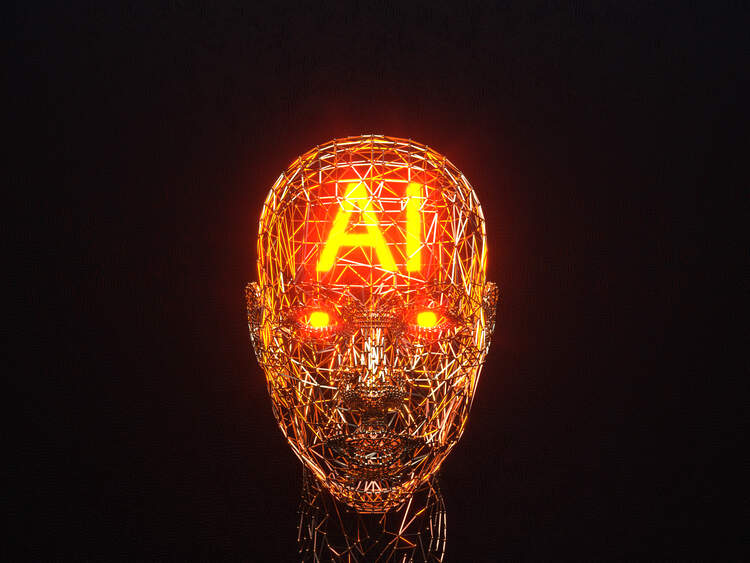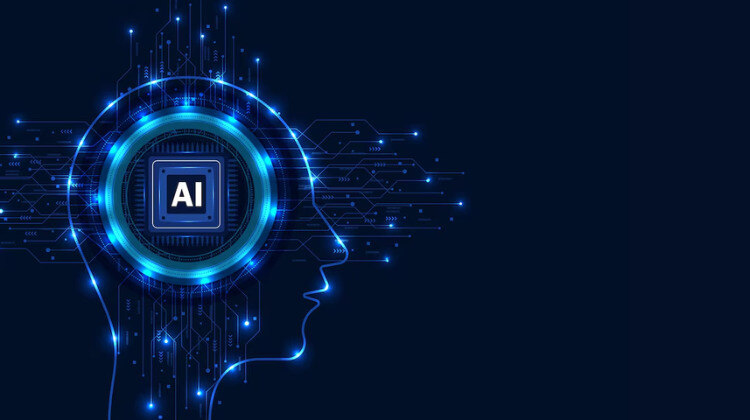
8 minute read
What Quantum Computing Technologies Work Best For Learning New Things?
Introduction: The Future of Learning with Quantum Computing
Quantum computing is no longer just a futuristic concept; it's becoming an integral part of our technological landscape. Imagine a computer that can solve complex problems in seconds, problems that would take classical computers millions of years to crack. Quantum computing holds this promise, and it's set to revolutionize many fields, including education and learning.
For those looking to delve into the world of quantum computing, finding an AI Institute Near Me in Noida can provide the necessary resources and expertise. These institutes offer specialized courses and training programs that can help you understand the intricacies of quantum computing and its applications. Whether you're a student, a professional, or just someone with a keen interest in cutting-edge technology, learning about quantum computing can open up a world of possibilities.
In this blog post, we'll explore the quantum computing technologies that are best suited for learning new things. We'll break down the essential steps and techniques, making it easier for you to grasp this complex yet fascinating field. So, buckle up and get ready for an exciting journey into the quantum realm, where learning takes on a whole new dimension.
Understanding the Basics of Quantum Computing
1. Grasping the Fundamental Concepts of Quantum Computing
Before diving into the specific technologies, it's crucial to understand the basic concepts that underpin quantum computing. Quantum computing is based on the principles of quantum mechanics, which describe the behavior of particles at the atomic and subatomic levels. Unlike classical computers that use bits as the smallest unit of data (which can be either 0 or 1), quantum computers use quantum bits, or qubits, which can exist in multiple states simultaneously thanks to a property called superposition.
Another key principle is entanglement, which allows qubits that are entangled to be correlated with each other, even when separated by large distances. This property is what gives quantum computers their incredible processing power, as it enables them to perform multiple calculations at once. To put it humorously, if classical computers are like skilled multitaskers, quantum computers are like superhuman multitaskers on caffeine!
To get a solid grounding in these concepts, enrolling in an AI Institute Near Me in Noida can be immensely beneficial. These institutes offer courses that break down these complex ideas into understandable chunks, providing hands-on experience with quantum computing systems. By building a strong foundation, you'll be better equipped to tackle more advanced topics and technologies in quantum computing.
2. Learning the Different Types of Quantum Computers
Quantum computers come in various forms, each with its own set of technologies and methodologies. The most common types include:
Superconducting Qubits: These are the most widely used and are employed by major companies like IBM and Google. Superconducting qubits use circuits made from superconducting materials, which can conduct electricity without resistance at very low temperatures. This technology is mature and has been proven to perform well in various applications, making it a popular choice for learning quantum computing.
Trapped Ions: In this approach, ions are trapped and manipulated using electromagnetic fields. Companies like IonQ are at the forefront of this technology. Trapped ions have the advantage of long coherence times, meaning they can maintain their quantum state for a longer period, which is beneficial for complex computations.
Topological Qubits: This is a more theoretical approach but holds great promise for the future. Topological qubits are less susceptible to errors caused by environmental factors, making them potentially more stable and reliable. Microsoft is one of the key players investing in this technology.
Each type of quantum computer has its own strengths and weaknesses, making them suitable for different learning applications. At AI Classes Near Me in Delhi, you can explore these different types of quantum computers, gaining hands-on experience with each and understanding their unique characteristics. This practical knowledge is essential for determining which technology best suits your learning goals.
3. Experimenting with Quantum Computing Platforms
To truly grasp quantum computing, hands-on experimentation is key. Several platforms and tools are available that allow you to experiment with quantum computing without needing access to a physical quantum computer. Some popular platforms include:
IBM Quantum Experience: IBM offers a cloud-based platform where you can run experiments on real quantum computers. This platform provides tutorials, resources, and a user-friendly interface, making it accessible for beginners.
Google Cirq: Google’s open-source framework for quantum computing allows you to write, simulate, and run quantum algorithms. Cirq is designed to be flexible and easy to use, making it a great tool for learning.
Microsoft Quantum Development Kit: This kit includes a programming language called Q# and a set of libraries and tools for developing quantum applications. It also provides simulators and other resources to help you get started with quantum programming.
By using these platforms, you can practice building and running quantum algorithms, gaining a deeper understanding of how quantum computing works. At AI Classes Near Me in Delhi, you can get guided tutorials and support from experts, ensuring that you make the most of these powerful tools.

Exploring Practical Applications of Quantum Computing in Learning
1. Using Quantum Computing for Optimizing Learning Algorithms
One of the most exciting applications of quantum computing is in optimizing learning algorithms. Quantum computers can solve optimization problems much faster than classical computers, making them ideal for improving machine learning models and algorithms. This capability can be particularly beneficial in educational technologies, where adaptive learning systems can be optimized to provide personalized learning experiences.
For example, quantum computing can be used to optimize the scheduling of study sessions, ensuring that learners review material at the optimal times for retention. It can also help in developing more efficient algorithms for analyzing student performance data, identifying patterns, and providing targeted feedback. By leveraging the power of quantum computing, educational institutions can enhance the effectiveness of their teaching methods and improve learning outcomes.
At an AI Institute Near Me in Noida, you can learn how to apply quantum computing to optimize learning algorithms, gaining hands-on experience with real-world applications. This practical knowledge is invaluable for developing innovative solutions that can transform the education sector.
2. Developing Quantum Algorithms for Educational Tools
Another promising application of quantum computing is in developing new algorithms for educational tools. Quantum algorithms can solve complex problems that are beyond the reach of classical algorithms, making them ideal for creating advanced educational technologies. For instance, quantum algorithms can be used to develop more sophisticated simulations and virtual environments, providing learners with immersive and interactive experiences.
Quantum computing can also enhance the capabilities of educational software, enabling it to handle larger datasets and perform more complex analyses. This can lead to the development of more powerful educational tools that can provide deeper insights into student learning and behavior.
By enrolling in an AI Institute Near Me in Noida, you can learn how to develop quantum algorithms for educational tools, gaining the skills needed to create cutting-edge technologies that can revolutionize the way we learn. This hands-on experience is essential for staying ahead in the rapidly evolving field of educational technology.
3. Exploring the Ethical Implications of Quantum Computing in Education
As with any powerful technology, the use of quantum computing in education raises important ethical questions. For instance, how do we ensure that quantum-powered educational tools are used fairly and responsibly? How do we protect the privacy of student data in a quantum computing environment? These are critical issues that need to be addressed as we move forward with the adoption of quantum computing in education.
At AI Classes Near Me in Delhi, you can explore the ethical implications of quantum computing in education, learning about the potential risks and challenges, and how to mitigate them. This knowledge is crucial for developing responsible and ethical educational technologies that benefit all learners.
Conclusion: Embracing the Future of Quantum Computing in Learning
Quantum computing is poised to revolutionize the way we learn, offering new possibilities for optimizing learning algorithms, developing advanced educational tools, and enhancing the overall learning experience. By understanding the basic concepts of quantum computing, exploring different types of quantum computers, and gaining hands-on experience with quantum platforms, you can position yourself at the forefront of this exciting field.
Finding an AI Institute Near Me in Noida can provide the resources and expertise needed to master quantum computing and apply it to educational technologies. These institutes offer structured courses, hands-on projects, and expert guidance, ensuring that you gain the knowledge and skills needed to excel in this rapidly evolving field.
As we look ahead to 2024 and beyond, the potential of quantum computing in education is vast. By embracing this technology and exploring its applications, we can create innovative solutions that transform the way we learn and teach. So, whether you're a student, an educator, or a tech enthusiast, now is the time to dive into the world of quantum computing and unlock its potential for learning.
Are you ready to embark on this journey? Join AI Classes Near Me in Delhi, and start exploring the incredible possibilities of quantum computing in education. The future of learning is here, and it's quantum-powered.
Also Read This:-What Are The Ug Courses For Edge Computing In India?










